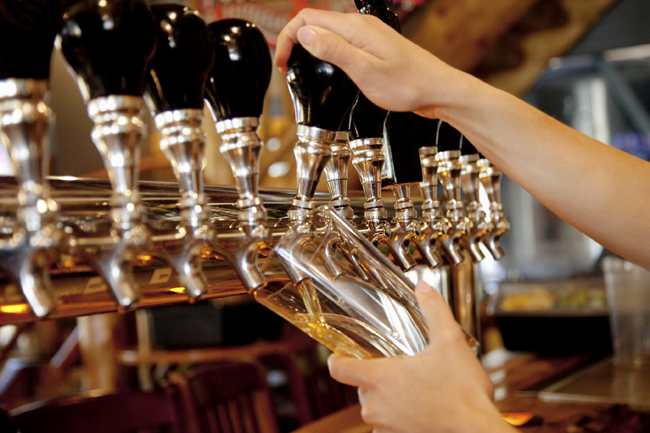The Campaign for Real Ale (CAMRA) have now said that they will now only be purchasing beer from breweries that can supply a full list of information regarding the ingredients they use in their beer.
“Every Camra festival now has full allergen information available to customers for every single real ale on sale, which ensures that somebody with an intolerance to something like gluten or wheat can be sure the beer they are choosing is suitable for them to drink. We want to ensure festival-goers are 100 per cent confident in the information they are given, and the only way to do that is to ensure we have the correct information at every step of the supply chain, from the brewers, to festival organisers, right through to the staff working behind our bars. I myself have a wheat intolerance and find it extremely difficult to get accurate information on whether a beer contains wheat or not, as it is often used in small amounts.” – Tim Page, the organisation’s chief executive
The decision by CAMRA, who are responsible organises about 200 real ale festivals across the UK each year, comes after new EU rules are set to come into force regarding food and drink labelling introduced at the end of 2014. The rules state that 14 allergens people should be made aware of if they are present in products. The list includes cereals containing gluten, prawns and other crustaceans, mussels and other molluscs, eggs, fish, peanuts, nuts, soybeans, milk, celery, mustard, sesame, lupin and sulphur dioxide.
Under these new regulations, bottled or canned beers are required to list any allergens that are present among the ingredients. According to the Food Standards Agency, where beer is served in a glass or from a pump, the information can either be given in writing or verbally.
“Any of the 14 allergens that now have to be listed can be found in the most innocuous of foods, including beer. It’s encouraging to see food outlets such as Camra beer festivals embracing the new regulations and understanding the importance of keeping those with food allergy safe.” – Lindsey McManus, deputy chief executive of Allergy UK
“As the increasing availability of gluten-free beers means that beer festivals are no longer off the menu for those with coeliac disease, a whole new consumer group could help boost interest in beer drinking.” – Sarah Sleet, chief executive of the Coeliac UK
However, there is a worry that many breweries are yet to list what their beers contain when it comes to allergens. At one of CAMRA’s biggest festivals, more than 350 breweries were asked to list the ingredients in their beers, but disappointingly 123 failed to do so.
Encouragingly, there are a growing number of brewers who are keen to capitalise on the increasing popularity of the “free from” market, and who are now producing gluten-free ales. Britain’s first brewery to produce gluten-free beers, Green’s Beers, was established in 2003, and there are now at least 10 UK breweries that specialise in producing gluten-free ales.

